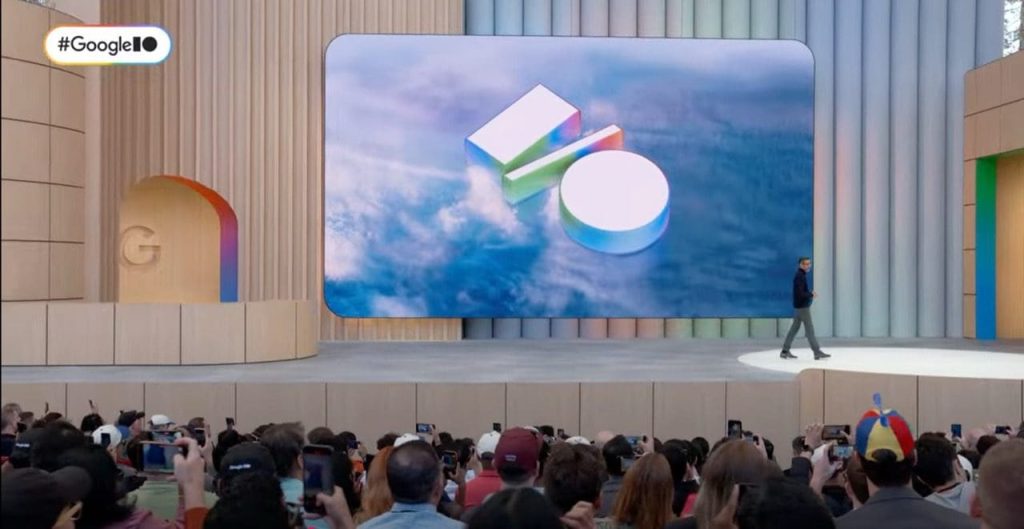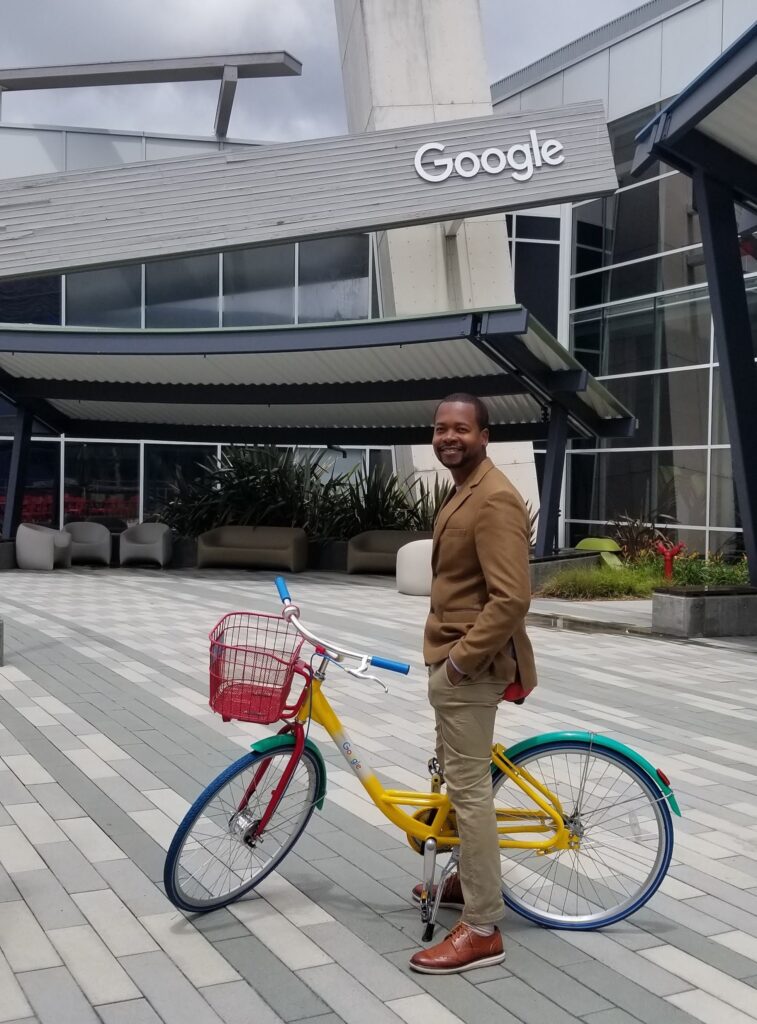Google I/O’ 25 Keynote Takeaway for Lawyers and Mediators

Greetings Lawyers and Mediators!

Every year, I tune into Google I/O to see the latest technological advancements in Mountain View. After my morning court hearing today, I got a chance to watch this year’s major announcements during Google’s opening keynote address. I’ve visited Google’s campus in the past and hope one day I can attend their I/O event in person.
Fortunately, for those like me who could not attend in person, Google makes it super convenient to catch I/O presentations via YouTube. You can watch this year’s full 3-hour keynote address here:
The address covered a lot of ground, showcasing rapid progress in AI models like Gemini 2.5 Pro. There was lots of news about Project Astra powering a universal AI assistant, advancements in Google Search, and Gemini AI coming to worktools like the new Android XR glasses (as an owner of the Meta Ray Ban AI glasses, I see Google AI glasses as my next upgrade).
As I watch these tech presentations, I do so with lawyers and mediators in mind. My goal is to distill what I think are actually useful within our practices, separating the groundbreaking announcements from the applicable technology we can use to work and serve our clients and parties.
What’s New
Some tools announced are not so practical for our craft. Things like Lyria 2, which generates music, or Veo 3, which creates fantasy videos, might be good for you if you’re into content creation or marketing for your practice. But most law or mediation practitioners can skip these eye-candy presentations. Several tech announcements however, do stand out as having potentially significant applications for lawyers and mediators. Here are just a few:
Deep Research: Like most lawyers, I google things a lot! Whether it’s to pull a case up on Google Scholar, or to quickly look up a statue for printing, as I did this morning on my way out the door, Google Search is one of my primary work tools, both on PC and mobile. Google announced AI Mode in Google Search, which will now include what they’re calling “Deep Research.” This is something described as going beyond traditional search by using a “query fan-out technique.” Basically, your one search will actually be dozens or even hundreds of searches done on your behalf by AI to create an expert-level, fully cited report in just minutes. For lawyers and mediators, this could be transformative for complex legal research, potentially analyzing large volumes of information, including statutes, regulations, and case law.


It’s a wait-and-see for me, but I imagine something like this might start challenging traditional tools that Shepard and Keycite case law. Deep Research is not the Google Search we’ve grown up with. For the legal research industry, I think Deep Research could become very disruptive. Watching its analysis at work during the keynote address, I thought Deep Research seemed empowering and even equalizing to a degree for smaller firms. But let’s wait for the bar, big(law)tech, and the courts to have their say. Lawyers will definitely use this (hopefully with a trust but verify approach), but it would be interesting to see how law schools approach its usage with students. What blew me away is that Deep Research will also let you use it sort of like Notebook LM (Plus), which I now use a lot, by letting you upload your own files to guide the Research. This could enable analysis of case-specific documents, briefs, or discovery. I’m very much looking forward to trying out Deep Research.
AI Mode in Google Search: As mentioned above, AI Mode represents a total reimagining of Search. Powered by Gemini 2.5, it’s designed with advanced reasoning to handle longer and more complex searches (two to three times the length of traditional searches). It’s launching live now in the US and you’ll soon be available to see it as a new tab directly in Google Search. AI Mode will be a more intelligent and agentic mode of Google Search. It’s supposed to provide you with more comprehensive initial answers and allow for conversational follow-up questions. Google is putting this out front and center for all US Google users to test out, so I’m thinking they’ve ironed out the bugs with this sudden but big release. Most of the other announcements confirm a late summer or “later this year” release timeline.
Project Mariner and Agentic Capabilities: Google’s Project Mariner was introduced back in 2024 as an early step in developing agents that can interact with the web and “get stuff done.” I have all been hearing about AI agents a lot this past year. The term “agentic” even came up several times during this keynote. For those not too knowledgeable about “AI Agents,” basically, they are systems that combine AI model intelligence with access to tools, allowing them to take actions on your behalf and under your control. I first realized the full potential of AI Agents and how they could be used with your computer when Claude announced their “computer use” tool back in October 2024. To Claude, Google, and even OpenAI “computer use,” which enables AI interaction with your computer’s browsers and software, is the beginning of the end of letting us having our own AI assistant control our computers for us. Imagine your PC literally running itself to browse, research, type, calculate, edit, all on its own. Think about how revolutionary it could be to not have to sit behind your desktop to work! Another word I heard a lot that connects to this topic is “control.” Google knows PCs potentially running themselves with 3rd-party AI Agents sound Orwellien and Skynetish, so they reminded viewers today that what they were witnessing can be done under one’s control. For lawyers and mediators, the ability to use AI Agents to operate computers does raise lots of ethical and privacy concerns. However, AI Agents may potentially benefit professionals around the world by opening the door to automating routine digital tasks, such as extracting information from websites, filling out forms, and managing information across different applications.
Google Beam: Described as the next chapter in Project Starline, Google Beam is a new AI-first, video communications platform. It aims to create the feeling of being in the same room by transforming 2D video streams into a realistic 3D experience using multiple cameras and AI. This results in a much more natural, and deeply immersive conversational experience. Imagine it’s like if Zoom and those Star War holograms had a baby. For virtual mediations, this technology could be a game changer. It has the potential to overcome some of the limitations of current video conferencing, allowing mediators and parties to connect virtually with a sense of shared physical space, which could significantly impact communication and rapport building in conflict resolution settings. The first devices will be available for early customers later this year through a collaboration with HP.


Personalized Smart Replies in Gmail: Building on Google’s existing Smart Reply feature, something you probably have seen if you use Gmail, “Personalized Smart Reply” allows email responses to sound like you. Google says that with your permission and control, Gemini can use relevant context from your other Google apps like Drive, past emails, and Docs to craft replies that match your typical greetings, tone, style, and even favorite word choices. I use Google Workspace and am pretty deep in Google’s ecosystem. I hope this will help me work faster since I spend more time on email than probably any other task. Also, as for my tone and style, I like to get straight to the point in my messages, while being as respectful as possible. I hope the new smart reply function will actually mimic me because the existing incorporation of Smart Reply is pretty bad. It tends to make me sound long-winded, someone my colleagues and clients would never recognize. This Personalized Smart Replies feature, coming to Gmail for subscribers this summer, could be incredibly helpful for lawyers and mediators managing high email volume, allowing for quicker, more personalized, and professional responses to clients, opposing counsel, or parties, while maintaining their unique voice.
Gemini in Chrome: Although I’ve used Edge, Safari, and FireFox, Google Chrome remains my favorite browser. It’s unfortunately still a beast on CPUs, something I hope Google fixes over time. But for its extensions library and integration within the Google ecosystem, it’s still the go-to browser of choice. That became a lot easier to say today after the Gemini in Chrome announcement. This Chrome browser assistant can understand the context of the page you’re on automatically and help answer questions or perform tasks related to that page. This could be useful for analyzing online sources relevant to a case for example, or comparing information from multiple web pages, or quickly getting summaries of lengthy online documents without leaving the browser. With these AI updates, Chrome in one swoop could make Chromebooks Great Again. Sidenote: I had always imagined Chromebooks to be like cotton candy, they tickle your nose, but leave you looking for more once you actually use them. With Gemini and an AI agent controlling your browser, this could finally change and make cheap laptops productivity workhorses.

Conclusions
While not every technological leap at Google I/O will directly impact the day-to-day work of lawyers and mediators, it’s clear that Google’s AI Gemini projects are rapidly evolving into tools that can handle complex reasoning, automate tasks, and change how we communicate and interact with information. I think one of Google’s vision is to make Gemini indeed a Universal AI Assistant, that is able to be used across devices and interact with humans to make life easier and more productive. That should come as a benefit to lawyers and mediators who consider ways to integrate these tools into their businesses and personal lives. If we can do more with less using AI then hopefully that starts giving us time back to spend on more important things. But there will be some ethical and practical implications from these developments that are racing toward us in the next 6 months (like data security and professional responsibility). So let’s think about how we navigate this new era brought on by Google.

What are your thoughts on these announcements? Which ones do you see as most relevant to your practice?
